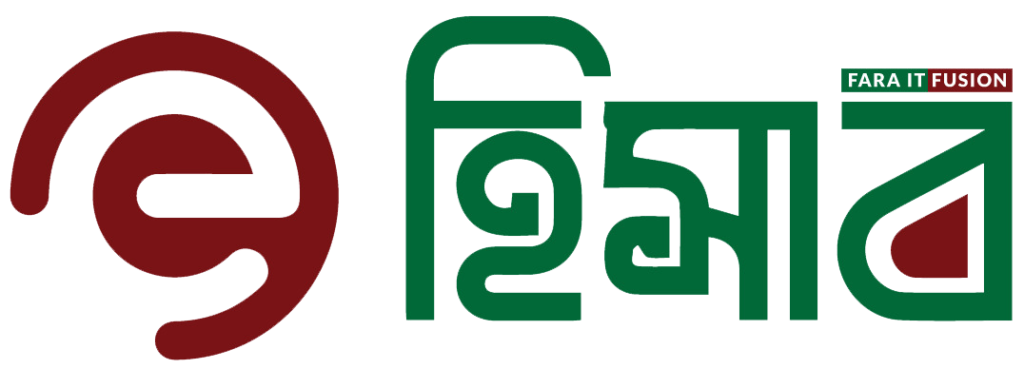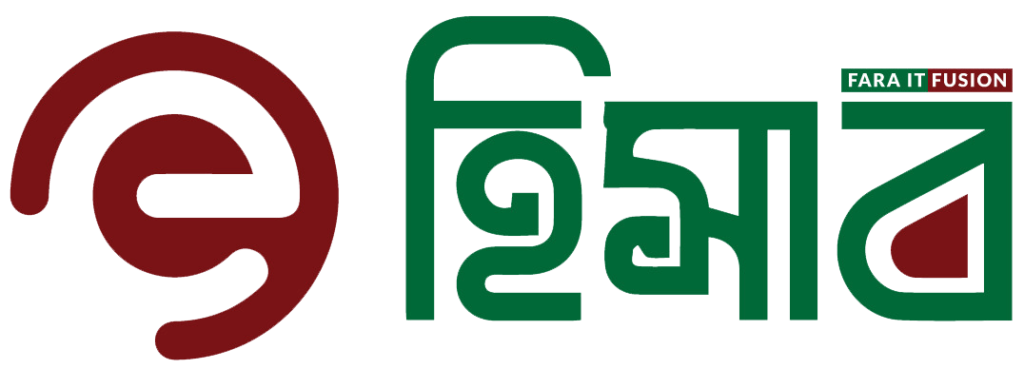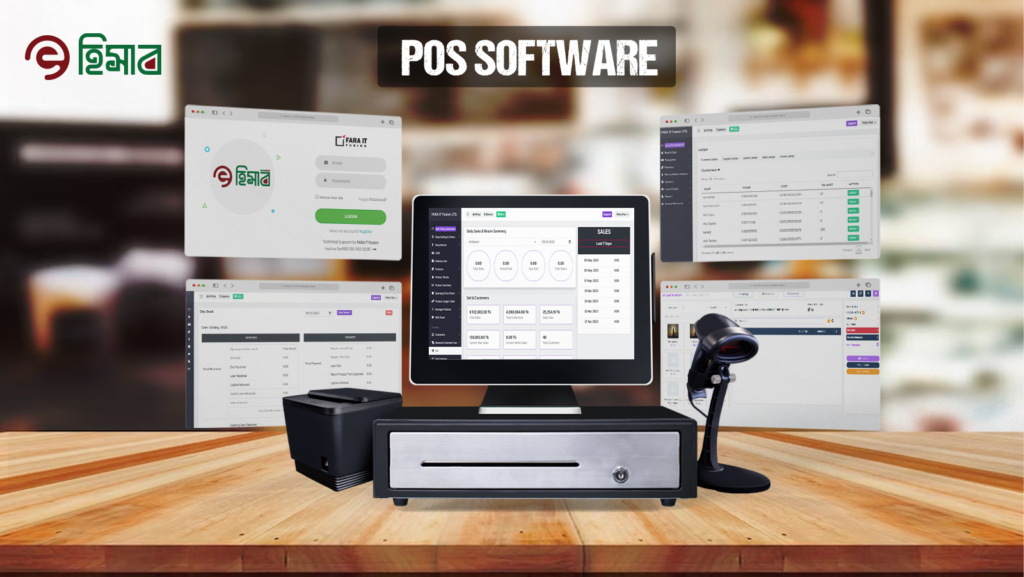Inventory management plays a crucial role in the success of any business. Whether you’re running a small retail store or a large manufacturing plant, effectively managing your inventory is essential for maintaining customer satisfaction, optimizing cash flow, and avoiding costly stockouts and overstocking.
Currently, in a fast-paced business world, effective inventory management is crucial for businesses of all sizes. The most efficient and reliable tool for inventory management POS Software.
POS Software
POS software stands for Point of Sale software. It is a computer program or application designed to facilitate sales transactions and manage various aspects of retail businesses. POS software is commonly used in retail stores, restaurants, pharmacies, and other businesses where products or services are sold to customers.
POS software is a computer-based system used by retailers and businesses to manage various aspects of their operations, including sales, inventory, and customer data.

Processing sales transactions is a POS system’s primary duty. This entails bar code scanning, payment acceptance, and updating inventory levels. Retailers may track sales data, discover which products are doing well, and spot any difficulties with their inventory by using reporting and data analysis features common to POS systems. It is the best way to manage your inventory!
Modern POS systems also frequently come with marketing and customer relationship management (CRM) technologies, allowing shops to better engage with their clientele and market their goods.
How Does a Point of Sale System Work?
A point of sale (POS) system is a technology that facilitates the transaction process between a customer and a business. It is a combination of hardware and software components that work together to streamline sales and manage inventory. The typical workflow of a POS system involves several key steps.
To conduct sales transactions, control inventory levels, and produce real-time sales data, POS systems incorporate hardware and software. Sales associates use the hardware to scan products, handle payments, and update inventory levels.
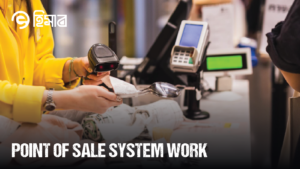
In the software, retailers can use inventory management features to track stock levels, create reorder reports, and keep an eye on sales patterns so they can make wise purchases. By utilizing these tools, retailers can acquire valuable insights into their operations and make wise business decisions.
How Does a Point of Sale Software Work with Inventory Management?
Point of sale (POS) software is a crucial tool for businesses that handle sales transactions and streamline inventory management processes. The integration of POS software with inventory management allows for efficient tracking, monitoring, and control of stock levels. When a sale is made, the POS software deducts the sold items from the inventory automatically, ensuring accurate stock counts in real-time.
This real-time system provides businesses with up-to-date information on product availability, preventing overselling or stock outs. POS software with inventory management capabilities can generate detailed reports on sales, inventory turnover, and product performance. These insights help businesses make informed decisions regarding purchasing, pricing, and restocking.
Benefits of Using a Point of Sale Software
Streamlined Sales Process
POS software with inventory management capabilities streamlines your sales process by automating various tasks. It allows you to easily scan and process products, calculate accurate prices, apply discounts or promotions, and generate receipts for customers. This improves the speed and efficiency of your transactions, leading to faster checkouts and happier customers.
Accurate Inventory Tracking
With integrated inventory management, a POS software enables real-time tracking of your stock levels. Every sale or return is automatically recorded, ensuring that your inventory records are up to date. This helps you avoid stock outs by timely reordering, identify slow-moving or obsolete items, and make data-driven decisions to optimize your inventory.

Efficient Order Management
A POS software with inventory management allows you to manage orders efficiently. It tracks customer orders, updates inventory levels, and generates purchase orders automatically when stock reaches a specified threshold. This ensures that you never miss out on potential sales due to stock unavailability and helps in maintaining a smooth order fulfillment process.
Enhanced Customer Experience
By using a POS software with inventory management, you can provide a better customer experience. With accurate stock information at your fingertips, you can confidently inform customers about product availability. Additionally, features like personalized promotions, loyalty programs, and easy returns contribute to improved customer satisfaction and loyalty.
Better Customer Service
Retailers may ensure they always have the items that their consumers desire in-store by using a POS system with inventory management. This helps businesses in improving customer interactions, raising customer happiness, and delivering better customer service.
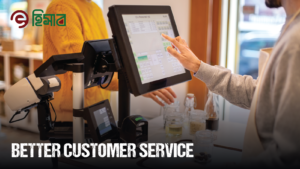
Data-Driven Insights
Another significant benefit of using a POS software with inventory management is access to valuable data-driven insights. The software generates detailed reports and analytics on sales trends, inventory turnover, popular products, and customer behavior. These insights help you make informed decisions about pricing, marketing strategies, inventory planning, and identifying opportunities for growth.
Time and Cost Savings
Automating tasks through a POS software with inventory management saves valuable time and reduces manual errors. It eliminates the need for manual stock checks, manual price calculations, and manual data entry. With streamlined processes, your staff can focus on more value-added activities, such as providing better customer service and implementing growth strategies. Moreover, accurate inventory management reduces the risk of overstocking, saving costs associated with excess inventory.
Inventory Optimization and Demand Forecasting
Advanced features like inventory optimization and demand forecasting are available in many POS systems with inventory management. These tools forecast future product demand using previous sales data and other data. This enables businesses to plan their inventory levels more effectively, minimizing waste and boosting profitability.
Choosing the Right Point of Sale Software for Your Business Inventory Management
When selecting a POS software with inventory management, it’s essential to consider your specific business needs, scalability, ease of use, compatibility with your existing systems, and ongoing support. Currently, Ehishab POS Software is the best POS software in Bangladesh for managing business inventory.

Ehishab is a Point of Sale (POS) software that is known for its effectiveness in inventory management. It offers a range of features and functionalities that can streamline inventory processes and improve overall efficiency.
With Ehishab, businesses can easily track their inventory levels, manage stock replenishment, and monitor product movements. The software provides real-time updates on stock availability, enabling businesses to make informed decisions regarding purchasing, sales, and reordering. This helps prevent stockouts and overstocking, ultimately optimizing inventory levels and reducing costs.
Another notable feature of Ehishab is its reporting capabilities. It generates comprehensive reports on inventory performance, sales trends, and stock valuation, providing valuable insights to help businesses make data-driven decisions.
Overall, Ehishab is considered one of the top POS software options for inventory management due to its user-friendly interface, robust features, and ability to optimize inventory operations.
